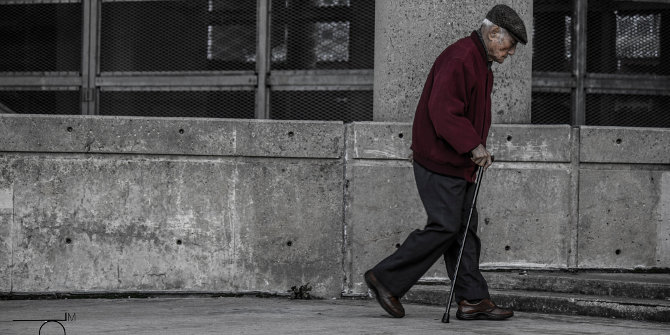
 Social capital matters for well-functioning societies, but how is it generated? Looking at the role of family, Emily Rainsford and William Maloney suggest that parents have a greater effect on their children’s level of trust than organisational involvement. Based on the premilinary findings of their research, they conclude that socialisation research could inform social capital work.
Social capital matters for well-functioning societies, but how is it generated? Looking at the role of family, Emily Rainsford and William Maloney suggest that parents have a greater effect on their children’s level of trust than organisational involvement. Based on the premilinary findings of their research, they conclude that socialisation research could inform social capital work.
High levels of social capital are seen as central to the civic and democratic health of societies. Its numerous alleged positive outcomes are wide ranging – from generating political and civic participation, to promoting social cohesion and integration, to increasing employment, to individual and societal health and well-being. But where does it come from?
Social Capital Generation: Voluntary Organisations
The hype around social capital started with Robert Putnam’s seminal work on ‘Bowling Alone’, where he argued that face-to-face interactions in civic organisations generated the pro-civic and democratic norms and behaviours that are essential for a well-functioning democracy, such as trust and reciprocity. Civic organisations are schools of democracy as Alexis de Tocqueville famously expressed it. Thus, according to the Neo-Tocquevillian/Putnam perspective, voluntary organisations are key generators of social capital.
Much research has since challenged the argument that organisations are central social capital manufacturers. Some studies have demonstrated that there is a problem with the direction of causation. A longitudinal study showed that we see a substantial self-selection effect in organisations. People who already hold pro-civic and pro-democratic attitudes are more likely to join organisations in the first place and less likely to leave, and these attitudes are not enhanced by the length of their membership.
Other research highlighted that there are places other than voluntary organisations where citizens spend more time and these locations are likely to have a stronger influence on young people’s attitudes and values, for example, the school environment and the family. (Other societal institutions are also likely to have an influence on social capital – e.g. political institutions or the welfare state.)
Social Capital Generation: The Family
The cooperative unit of the family is a prime location for socialisation and the inculcation of trust and reciprocity – key social capital components. However, academic research has not devoted a lot of effort to empirically investigating the family as a generator of social capital. Just as with political socialisation, parents give their children cues through their attitudes and behaviours, and children pick up on these and replicate them in their own behaviour. The family is an institution where trust, tolerance, and reciprocity can be inculcated and ‘transferred’ to wider society. It is experiential learning through observing, inculcation and doing. So how does the family hold up empirically in comparison to voluntary organisations? That is what we have tested.
The paired sample
To test the influence of the parent we used the unique CUPESSE dataset that has child-parent pairs. The young person was part of IPSOS-Mori internet panel and we recruited the parent through the young person. (To fully explore the influence of the parent of course a longitudinal study would have been optimal, but that was not feasible for this project.) The dataset consists of 453 parent-child pairs, where the young person was between the ages 18-35 and the sample is representative at the UK level. We focus on young adults because they are at the critical point between dependent childhood and independent adulthood where the mix of family influence and other socialisation agents can be explored. If the parents have some influence, we should see that the children and parents are quite similar in their attitudes.
Young people are trusting of other people
In our survey we asked the standard and well-established measurement for generalised trust: On a scale from 0-10, do you think that most people can be trusted or that you can’t be too careful. Where 0 means you can’t be too careful and 10 means most people can be trusted. The histogram in Figure 1 below shows that young people in Britain today are quite trusting of other people; there is a positive skew in the histogram where we see higher frequencies at the top end of the spectrum.
 But are they involved in voluntary organisations?
But are they involved in voluntary organisations?
We began by testing if organisational involvement had an effect on young people’s trust, despite the critics’ suggestions otherwise. It also gives us a good baseline to compare the family influence. So we asked our respondents: During a normal week roughly how many hours are you involved in organisations such as charities, environmental organisations, sport clubs or cultural organisations? The results we see in Table 1 below show that 58.5% of young people in our sample are not involved in any organisations during a normal week (and 15.9% spend less than one hour per week in organisations). This suggests that the high levels of generalised trust we see may be generated elsewhere.
Figure 2 shows that the generalised trust of the parents follows a similar pattern to their children (shown in Figure 1). Parents exhibit relatively high level of trust – the histogram shows a peak at the 7 score – and have a similar profile to their children. So can we conclude that parents rather than organisations have a stronger influence on the levels of trust among young British adults?
 Of course this is only on the aggregate level and these descriptive statistics do not tell us if there is a correlation between parent and child generalised trust and child organisational involvement. Table 2 below shows that the descriptive statistics are supported by the correlation. We see a much stronger correlation between parent’s trust and child’s trust (0.43) than we see between organisational involvement and child’s trust (0.12). We should also note that the organisational effect may be due self-selection as some critics have argued.
Of course this is only on the aggregate level and these descriptive statistics do not tell us if there is a correlation between parent and child generalised trust and child organisational involvement. Table 2 below shows that the descriptive statistics are supported by the correlation. We see a much stronger correlation between parent’s trust and child’s trust (0.43) than we see between organisational involvement and child’s trust (0.12). We should also note that the organisational effect may be due self-selection as some critics have argued.
The analysis presented here is preliminary and exploratory, but it does suggest that parents have a greater effect on their children’s level of trust than organisational involvement. Yet the development of norms and values associated with social capital is a complex process and there are a number of socialisation agents that play a role and many other mechanisms that need to be further explored. What we can conclude is that valuable lessons can be drawn from socialisation research that could inform social capital work, because family matters more than organisational involvement.
____
Note: the above draws on a paper presented at the Political Studies Association Conference in Glasgow in April 2017. The research was conducted under the ‘Cultural Pathways to Economic Self-Sufficiency and Entrepreneurship’ project (CUPESSE). The CUPESSE project has received funding from the European Union’s Seventh Framework Programme for research, technological development and demonstration under grant agreement no.613257.
 Emily Rainsford is Research Associate in the School of Geography, Politics and Sociology at Newcastle University.
Emily Rainsford is Research Associate in the School of Geography, Politics and Sociology at Newcastle University.
 William Maloney is Professor in the School of Geography, Politics and Sociology at Newcastle University.
William Maloney is Professor in the School of Geography, Politics and Sociology at Newcastle University.









